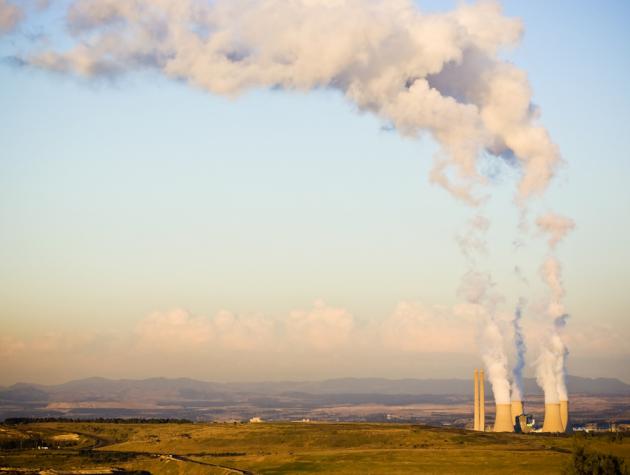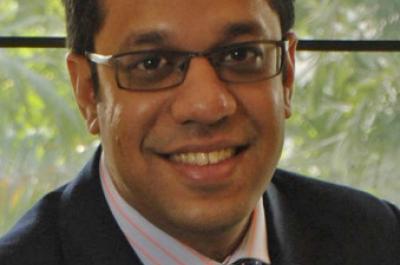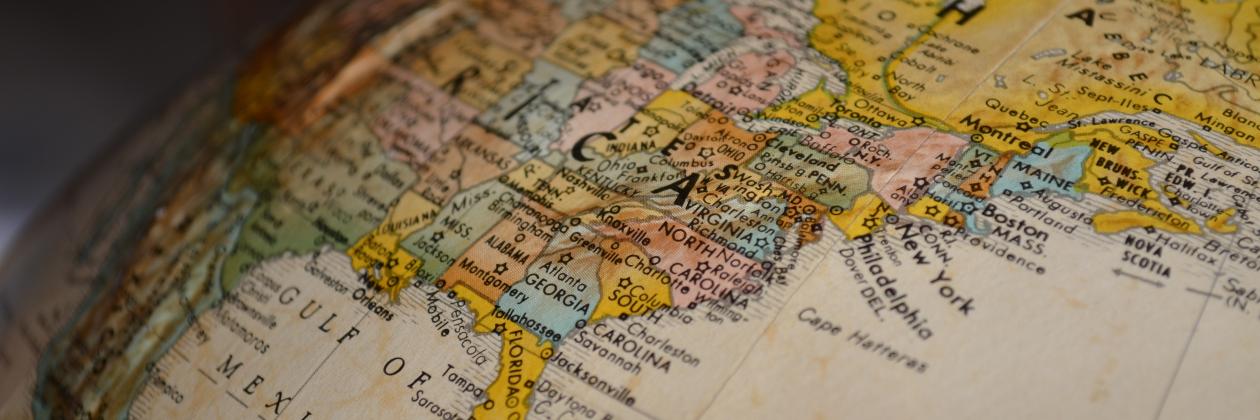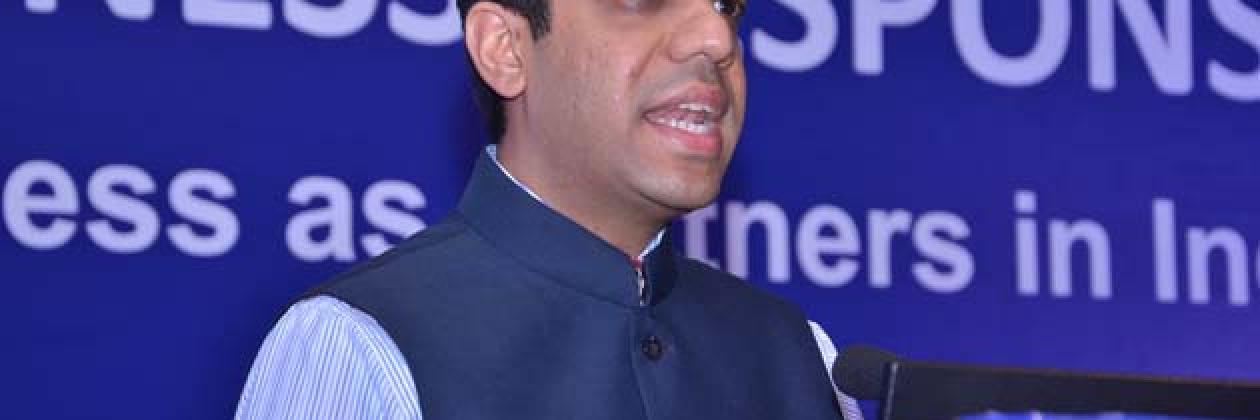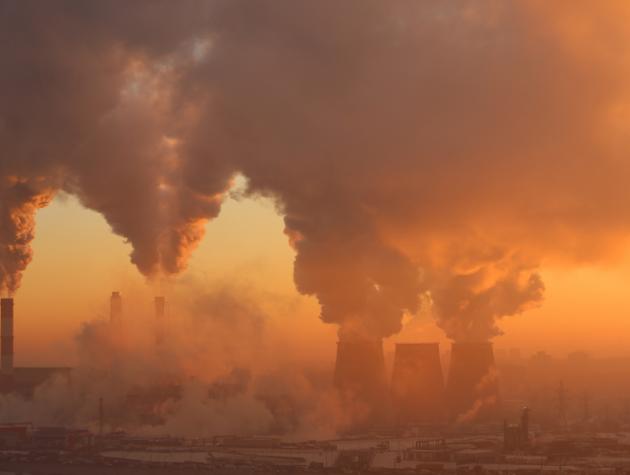Arunabha Ghosh is a Research Associate of the Global Economic Governance Programme and CEO of the Council on Energy, Environment and Water (CEEW), an independent, policy research institution in India with a mandate to address pressing global challenges through an integrated approach. With experience in more than thirty countries, Arunabha’s work intersects international relations, global governance and human development, including climate, energy, water, trade and conflict. He advises governments, industry and civil society around the world on energy and resources security; renewable energy policy; water governance and institutions; climate governance (financing, R&D, geoengineering); energy-trade-climate linkages; and international regime design.
Dr Ghosh is part of Track II dialogues on energy, water and climate change with the United States, Israel and Pakistan. He is associated with Oxford’s Global Economic Governance Programme and its Smith School of Enterprise and the Environment, and was previously Policy Specialist at the United Nations Development Programme (New York) and worked at the World Trade Organization (Geneva). He sits on the Governing Board of the International Centre for Trade and Sustainable Development, Geneva. In March 2013, the World Economic Forum selected him as a Young Global Leader.
Arunabha holds a doctorate and M.Phil. in international relations from Oxford (Clarendon Scholar and Marvin Bower Scholar); an M.A. (First Class) in Philosophy, Politics and Economics (Balliol College, Oxford; Radhakrishnan Scholar); and topped Economics from St. Stephen’s College, Delhi University. He lives in Gurgaon, India, and speaks English, Hindi, Bengali and basic Spanish.
Select Publications
Arunabha Ghosh (Forthcoming) “India’s Resource Nexus: Imperatives for Domestic Policy and Global Governance,” in China and India: Towards Cooperation between the Giants of Asia, edited by Kishore Mahbubani, Huang Jing, and Kanti Bajpai. Singapore: National University of Singapore. An earlier version submitted to the National Security Advisory Board, India, March.
Arunabha Ghosh, and David Steven (Forthcoming) “India’s Energy, Food, and Water Security: International Cooperation for Domestic Capacity,” in India and Multilateralism: Shaping the Emerging World Order, edited by Bruce Jones, Pratap Bhanu Mehta, and Waheguru Pal Singh Sidhu. Washington, D.C.: Brookings Press.
Arunabha Ghosh (2012) “Industrial demand and energy supply management: A delicate balance,”Empowering growth - Perspectives on India's energy future, Economist Intelligence Unit, October, pp. 26-32. Also published in East Asia Forum Quarterly 4(4), October-December, Australian National University, pp. 6-8.
Vyoma Jha, Rishabh Jain, and Arunabha Ghosh (2012) “Results-Based Financing for Off-grid Energy Access in India,” Prospective cases for the Energy Sector Management Assistance Program, World Bank, November.
Arunabha Ghosh, Anjali Jaiswal et al. (2012) Concentrated Solar Power: Heating Up India's Solar Thermal Market under the National Solar Mission, September, New Delhi: Council on Energy, Environment and Water, and Natural Resources Defense Council, pp 1-23.
Arunabha Ghosh, with Himani Gangania (2012) Governing Clean Energy Subsidies: What, Why, and How Legal?, August, Geneva: International Centre for Trade and Sustainable Development.
Arunabha Ghosh, Benito Müller, William Pizer, and Gernot Wagner (2012) “Mobilizing the Private Sector: Quantity-Performance Instruments for Public Climate Funds,” Oxford Energy and Environment Brief, The Oxford Institute for Energy Studies, August, pp. 1-15.
Rudresh K. Sugam, and Arunabha Ghosh (2012) Institutional Reform for Improved Service Delivery in Bihar: Economic Growth, Agricultural Productivity, and a Plan for Reorganising the Minor Water Resources Department, Research Report submitted to the Government of Bihar, July, New Delhi: Council on Energy, Environment and Water, and International Growth Centre, Patna.
Anjali Jaiswal, Arunabha Ghosh et al. (2012) Laying the Foundation for a Bright Future: Assessing Progress Under Phase 1 of India’s National Solar Mission, Interim Research Report, April, New Delhi: Council on Energy, Environment and Water, and Natural Resources Defense Council, pp. i-38.
Arunabha Ghosh et al (2011) Understanding Complexity, Anticipating Change: From Interests to Strategy on Global Governance, Report of the Working Group on India and Global Governance, December, New Delhi: Council on Energy, Environment and Water, pp. i-70.
Martin A. Burton, Rahul Sen, Simon Gordon-Walker, and Arunabha Ghosh (2011) National Water Resources Framework Study: Roadmaps for Reforms, October, New Delhi: Council on Energy, Environment and Water and 2030 Water Resources Group, October, pp i-68.
Martin A. Burton, Rahul Sen, Simon Gordon-Walker, Anand Jalakam, and Arunabha Ghosh (2011)National Water Resources Framework Study, Research Report Submitted to the Planning Commission for the 12th Five Year Plan, September, New Delhi: Council on Energy, Environment and Water and 2030 Water Resources Group, September, pp. i-584.
Arunabha Ghosh (2011) ‘Seeking Coherence in Complexity?: The Governance of Energy by Trade and Investment Institutions’ Global Policy 2(3).
Jason Blackstock and Arunabha Ghosh (2011) ‘Does geoengineering need a global response – and of what kind?’ Background Paper, Solar Radiation Management Governance Initiative, Royal Society UK, Chicheley.
Arunabha Ghosh (2011) ‘Strengthening WTO Surveillance: Making Transparency Work for Developing Countries’ in Making Global Trade Governance Work for Development, edited by Carolyn Deere-Birkbeck. Cambridge: Cambridge University Press.
Arunabha Ghosh (2010) ‘Harnessing the Power Shift: Governance Options for International Climate Financing’ Oxfam Research Report, October.
Arunabha Ghosh (2010) ‘Making climate look like trade? Questions on incentives, flexibility and credibility’Centre for Policy Research Climate Brief, March. New Delhi.
Arunabha Ghosh (2010) ‘Developing Countries in the WTO Trade Policy Review Mechanism’ World Trade Review 9(3): 419-455. (An earlier version was published as ‘Information Gaps, Information Systems, and the WTO’s Trade Policy Review Mechanism’ Global Economic Governance Working Paper 2008/40.)
Arunabha Ghosh and Ngaire Woods (2009) ‘Governing Climate Change: Lessons from Other Governance Regimes’ in The Economics and Politics of Climate Change, edited by Dieter Helm and Cameron Hepburn. Oxford: Oxford University Press, pp. 454-477. (An earlier version was published as Global Economic Governance Working Paper 2009/51.)
Arunabha Ghosh and Kevin Watkins (2009) ‘Avoiding dangerous climate change – why financing for technology transfer matters’ Global Economic Governance Working Paper 2009/53.
Arunabha Ghosh (2009) ‘Enforcing Climate Rules with Trade Measures: Five Recommendations for Trade Policy Monitoring’ in Climate Finance: Regulatory and Funding Strategies for Climate Change and Global Development, edited by Richard B. Stewart, Benedict Kingsbury, and Bryce Rudyk. New York and London: New York University Press, pp. 272-280.
Arunabha Ghosh and Ngaire Woods (2009) ‘Developing Country Concerns about Climate Finance Proposals: Priorities, Trust, and the Credible Donor Problem’ in Climate Finance: Regulatory and Funding Strategies for Climate Change and Global Development, edited by Richard B. Stewart, Benedict Kingsbury, and Bryce Rudyk. New York and London: New York University Press, pp. 157-164.

